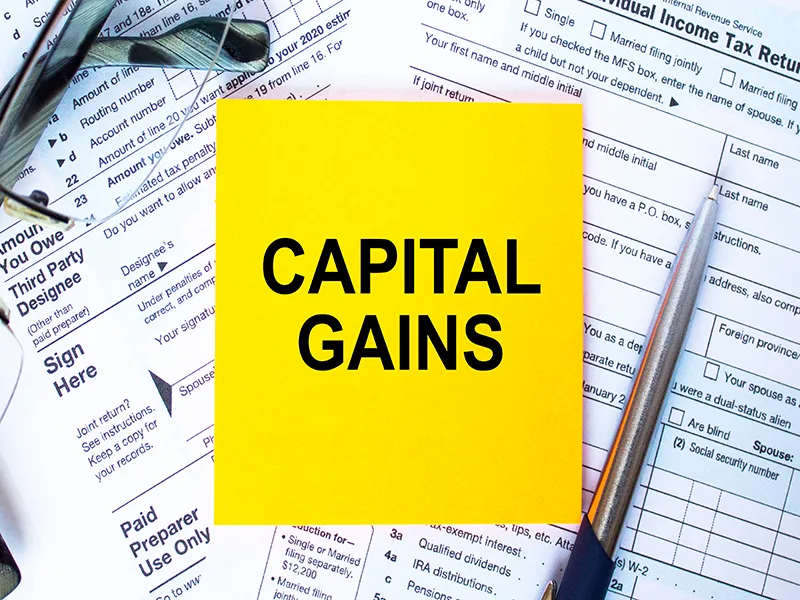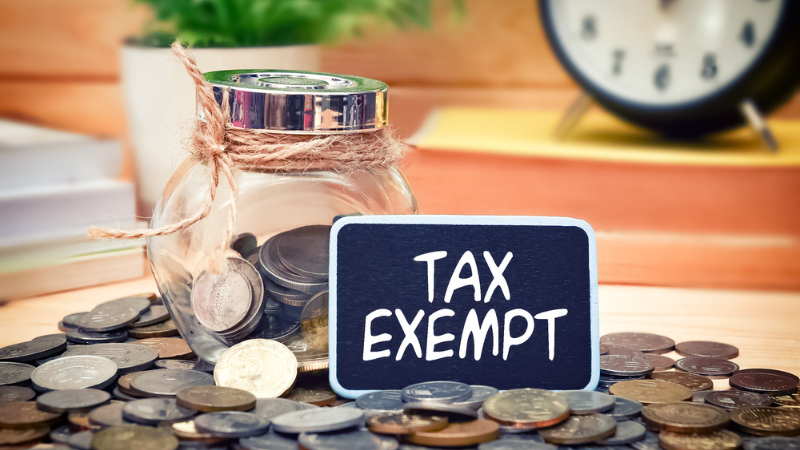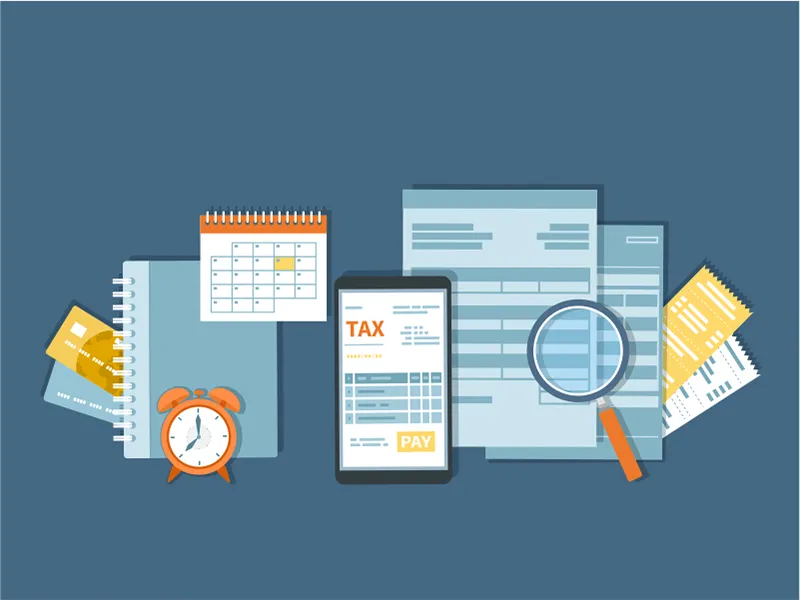
Investment in stock markets has been an attractive investment option for decades. Investors can gain a good amount of profit from their investment by correctly timing the sale of shares based on the market fluctuations. Most investors may not know that the profits from the sale of equity shares are taxable. Taxation is an important part to be considered for any kind of investment. It also influences the investment decision as well as the decision to liquidate the same. Investors and traders have to pay capital gains on the sale of equity shares based on their period of holding. Hence, such gains can be short-term capital gains or long-term capital gains.
Given below is the meaning of long-term capital gains and related details of the same.
Capital gains are one of the five heads under which the income of a taxpayer is classified as per the Income Tax Act, 1961. Capital gains arise when the taxpayer gains a profit or loss on the sale of a capital asset. A capital asset as per section 2(14) of the Income Tax Act, 1961 is any asset or property held by a person that can be movable or immovable whether related to business or not. A taxpayer has to first determine whether the asset is a capital asset and then the type of gain based on their period of holding.
Equity shares are also considered to be capital assets whether they are listed on a recognized stock exchange or not. When the investor sells equity shares that are listed on the recognized stock exchange after a period of 12 months from purchase, such equity shares are considered to be long-term capital assets.
In the case of equity shares not listed on a recognized stock exchange, when such shares are sold after a period of 24 months, they are considered to be long-term capital assets. Any gains on the sale of these long-term capital assets are classified as long-term capital gains and correspondingly any losses arising from the same are classified as a long-term capital loss.
Until the Budget of 2018, long term capital gain from the sale of equity shares was exempt from taxation as per the provisions of Section 10(38). This was, however, changed or amended in the Budget of 2018 when the long term capital gains arising from the sale of equity shares were included in the ambit of taxation.
The amendment was introduced in the form of section 112A. According to this section, any long term capital gains arising from the sale of equity shares held for the long term will be taxable in excess of Rs. 1,00,000. This implies that any long term capital gains from the sale of equity shares are exempt up to Rs. 1,00,000. Beyond this limit, LTCG from equity shares is taxable at the rate of 10%. The benefit of indexation will not be available on this LTCG.
What is the grandfathering rule of Section 112A?
As mentioned above, the budget of 2018 removed the exemption on long-term capital gains that were bought after 1st February 2018. For equity shares bought up to 31st January 2018, the Department has issued specific guidelines for the calculation of the cost of acquisition to ultimately calculate the net long-term capital gains or loss. This rule is known as the grandfathering rule. According to this rule, the cost of acquisition of equity shares bought on or before 31st January 2018 will be calculated in the following manner.
The cost of acquisition will be higher of,
- Fair market value as on 31st January 2018 or actual selling price, whichever is less
- Value calculated as per step (a) and actual purchase price, whichever is higher
Examples of Grandfathering Rule
To understand the grandfathering rule in a better manner, let us consider the following examples.
Consider an investor who has purchased shares of a company on January 1, 2017, at a cost of Rs. 100 per share. On January 31, 2018, the market value of the shares was Rs. 150 per share. If the investor sells the shares on June 1, 2021, for Rs. 200 per share, the LTCG tax will be calculated based on the difference between the sale price and the market value as of January 31, 2018, which is Rs. 50 per share. Therefore, the investor will pay tax on Rs. 50 per share at the new LTCG tax rate.
The calculation of long-term capital loss is done in the following manner.
| Full value of consideration (a) | xxx |
| Less – Cost of acquisition (b) | xxx |
| Long term Capital Gains / Loss (c= a-b) | xxx |
| LTCG in excess of Rs. 100000 (d = c-100000) | xxx |
| Tax rate (e) | 10% |
| Tax payable (f = d*e) | xxx |
In the above table, the full value of consideration is the actual sale value of the equity shares. The cost of acquisition is the actual cost without the benefit of indexation. In the case of equity shares bought on or before 31st January 2018, the cost of acquisition will be calculated as per the grandfathering rule mentioned above. Any long term capital gains in excess of Rs. 1,00,000 are taxed at a rate of 10% without the benefit of indexation. Also, taxpayers are not allowed to claim deduction under Chapter VIA of the Act or rebate under section 87A.
Prior to the introduction of section 112A, any long-term loss on the sale of equity shares was not allowed to be carried forward or set off like any other long-term loss. The basic premise for such a clause was since the gains from the sale of equity shares are exempt, the benefit of set-off and carry forward of losses cannot be awarded. However, after section 112A was introduced in the budget of 2018, any long term capital loss from the sale of equity shares can be carried forward for a period of 8 subsequent years. Such loss can be set-off against any future long term capital gain arising within the period of carrying forward. It is to be noted that LTCL can be set-off only against LTCG and not STCG (Short Term Capital Gain).
Conclusion
Investment in equity shares was quite profitable before section 112A as the whole of the gains were considered to be exempt. However, post section 112A, this exemption is limited to Rs. 1,00,000. This decision has made many investors consider the tax implications while buying and selling equity shares with higher caution. Long-term capital gains are still taxed at a lower rate than short-term capital gains.
FAQS
A. Yes. The provisions of the special section of capital gains i.e., section 54 to section 54GB are applicable for LTCG on equity shares.
When the income generated from the sale of equity shares is treated as capital gains, the traders must file ITR 2. However, in the case of income from the sale of equity shares through non-speculative business, traders will have to file ITR 3 along with the necessary financial statements.
Income from the sale of unlisted shares is taxable under the head of Capital gains. Investors and traders do not have the option to treat it as a business income as per the circular issued by CBDT on 2nd May 2016.
Any gains from the sale of unlisted equity shares held for a period of more than 24 months are categorized as long term capital gains and taxed at 20% after the benefit of indexation.
If the LTCG of a taxpayer is Rs. 1,75,000, the taxable amount is Rs. 7,500 [(10% of (175000-100000)]. This calculation is based on the assumption that the shares are listed and bought after 1st February 2018. In the case of shares being listed and bought before 31st January 2018, the grandfathering provisions of section 112A will apply.




















